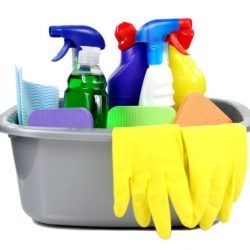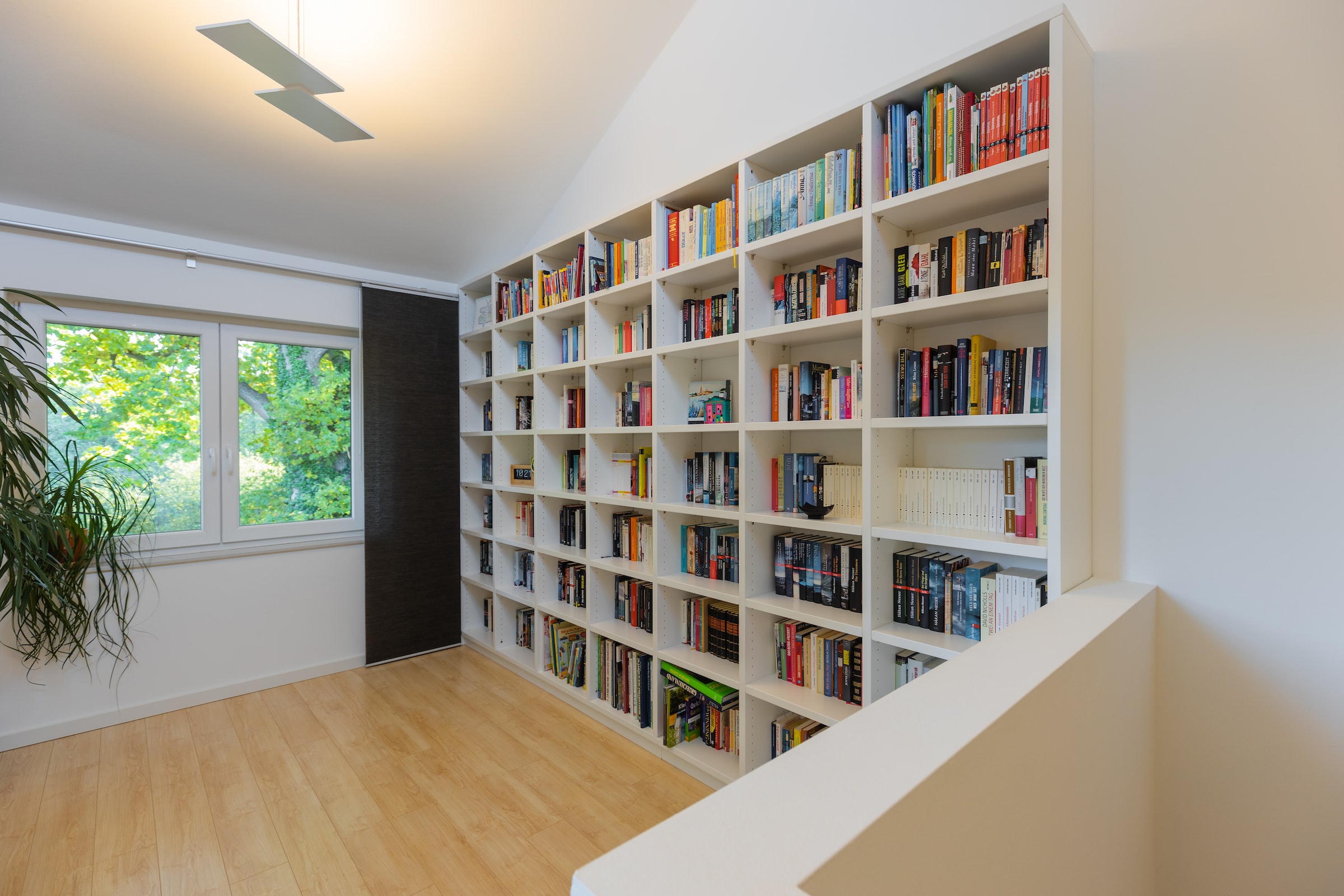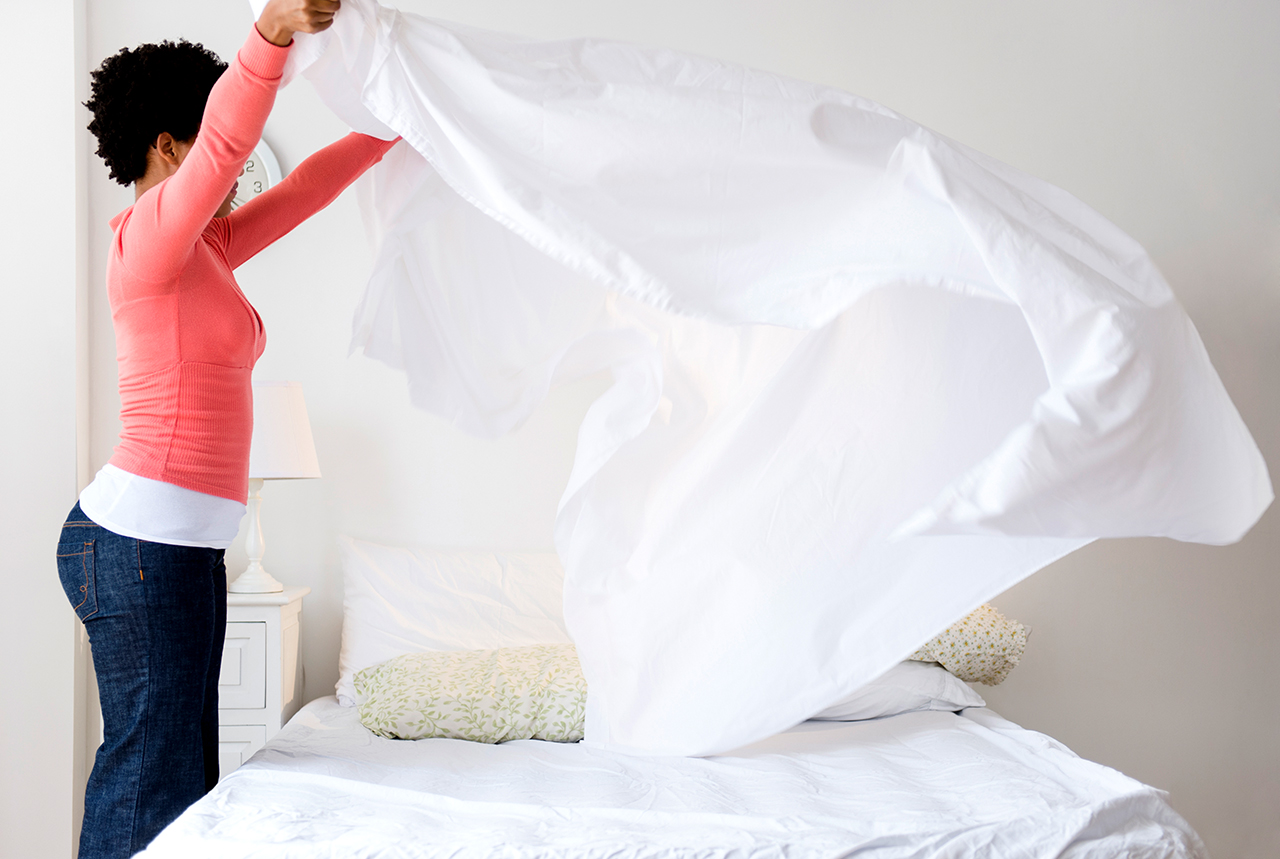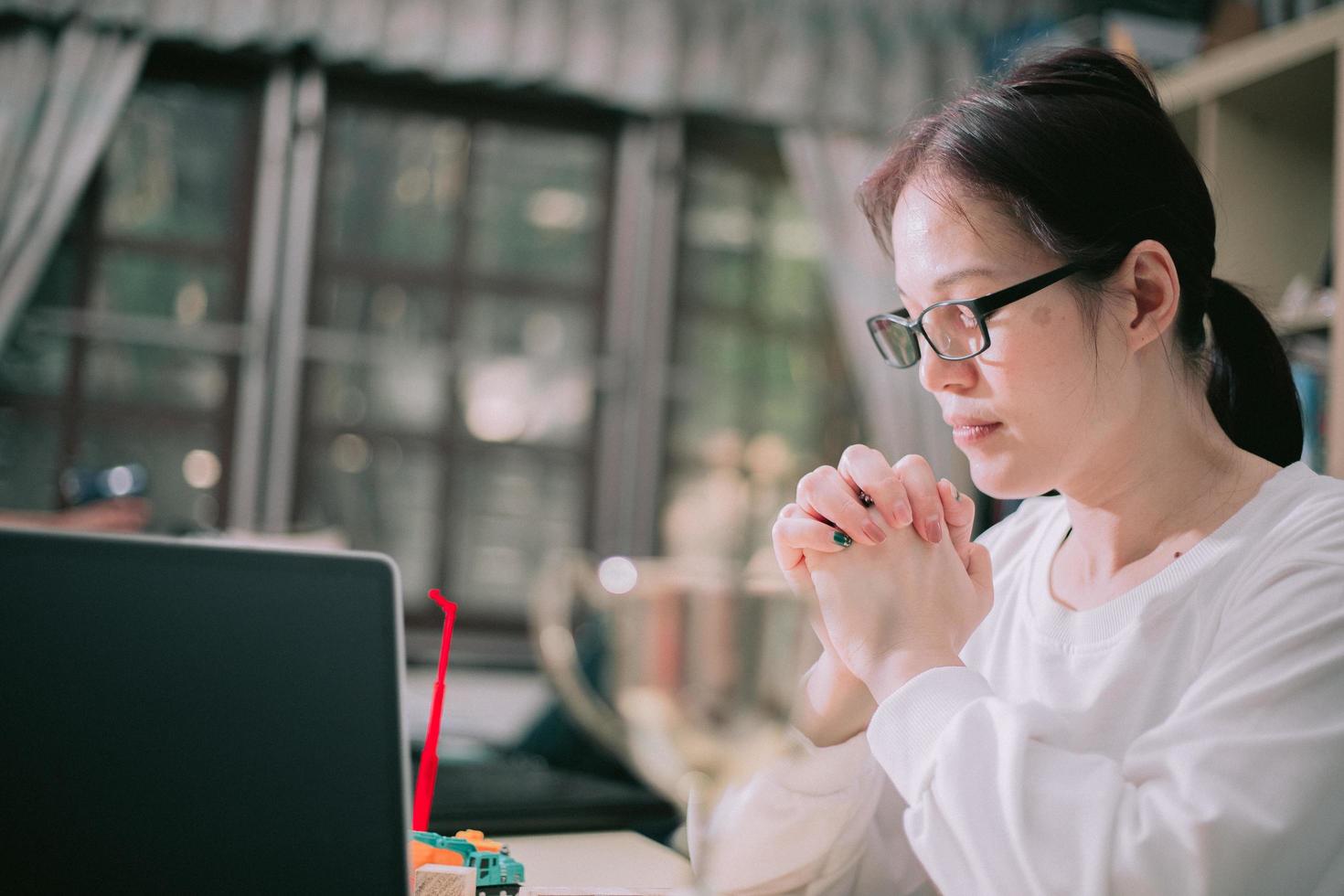Today, I’d like to share my 5 basic tips for storing your books first because I love cinema almost as much as literature then, because editing is indeed a beautiful concern for me. But I’m not talking about images here: I’m talking about a library.
It’s true that in the life of a bibliophile, the arrangement of a library, the logic of its classification, and its presentation… can be a full-time concern. I regularly think about the subject and have already had the opportunity to share my philosophy with you.
Today, I propose to get to the heart of the matter. Not all of us are ready to spend five hours thinking in front of our piles of books to find the perfect classification. So, to deal with the most pressing problems while offering you a truly effective method, I am presenting you today with the five tips essential to easily organize all your books.
1. Choosing the right storage
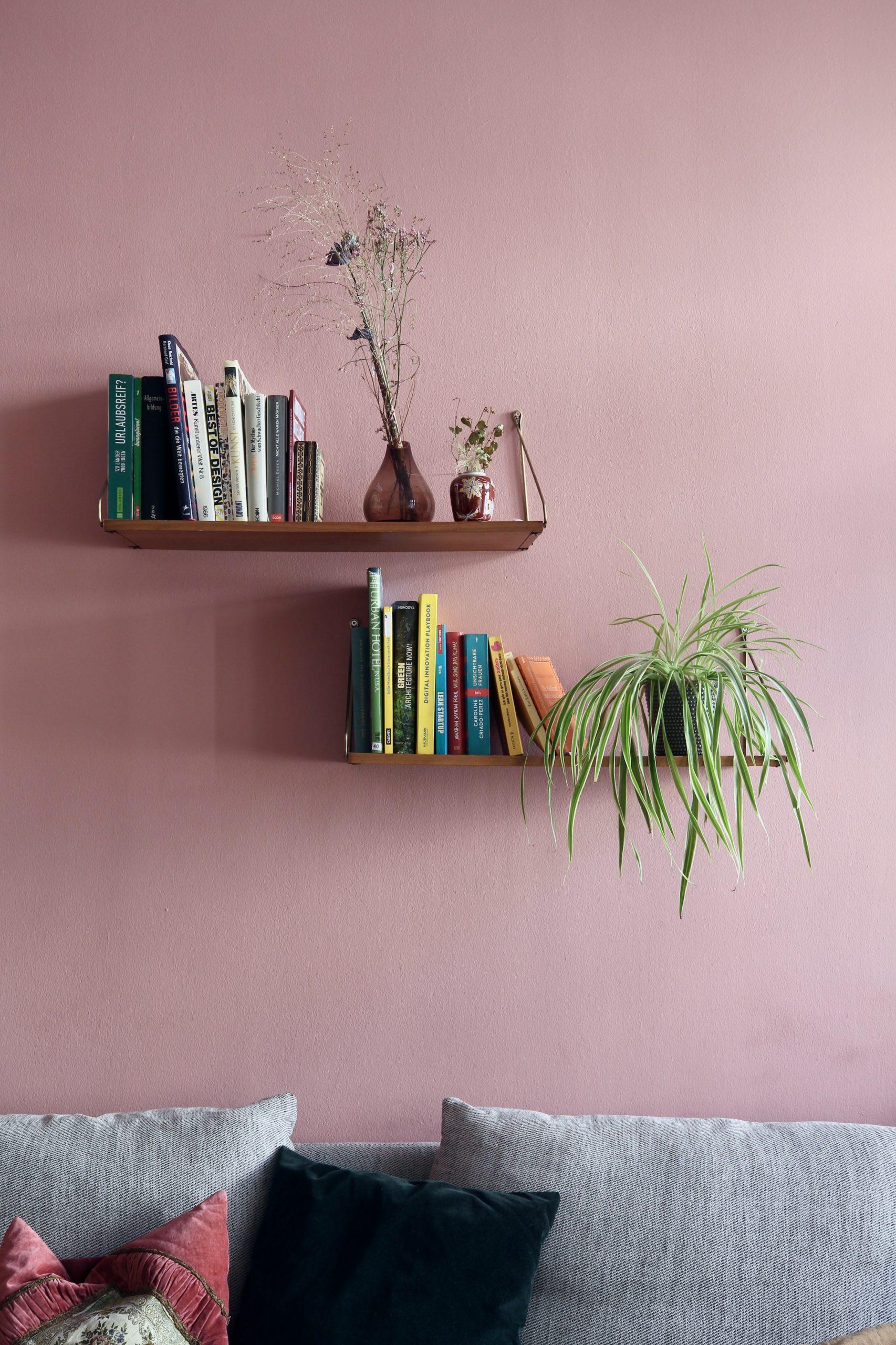
Shelves or bookcases, the choice is yours. But don’t lose sight of the fact that good storage starts with a dedicated, well-thought-out space for all your books. If you don’t keep much because you resell your books, opt for shelves: you don’t need much storage. But if you’re like me and like to keep all the books you’ve read, choose a fairly large bookcase. You’ll need shelves of varying heights to accommodate all your books, paperbacks, and paperbacks.
My dream would be to have an entire room dedicated to books. Because I didn’t have enough space, I chose to transform the entrance of my apartment into a ‘small library’. But if you are lucky enough to have more space and you have a lot of books, the idea of taking a room to be used as a library can be very wise. This room won’t go to waste: it can be used as an office, and if you put a sofa bed in it, it will also serve as a guest room.
The important thing is to first take a clear look at how many books you have and then choose your storage method according to your needs. Even if you don’t have a lot of space, it may be worthwhile to opt for a bookcase that is a bit bulky rather than having piles of books lying around the living room.
2. Separate read and unread novels
If you’re like me, you probably buy books from time to time even though you haven’t finished the one you’re reading. In my case, I am so easily tempted by new books that I have about thirty books ahead of me! So many books take up space and have to be stored somewhere.
So, in order to store them and find them better when I have time to read them, I keep them on a separate shelf. This system prevents me from losing them by mixing them with all the books I’ve read, and it also allows me to see at a glance if I’ve managed to reduce my pile of books to read this month.
3. Separate the nice books from the paperbacks
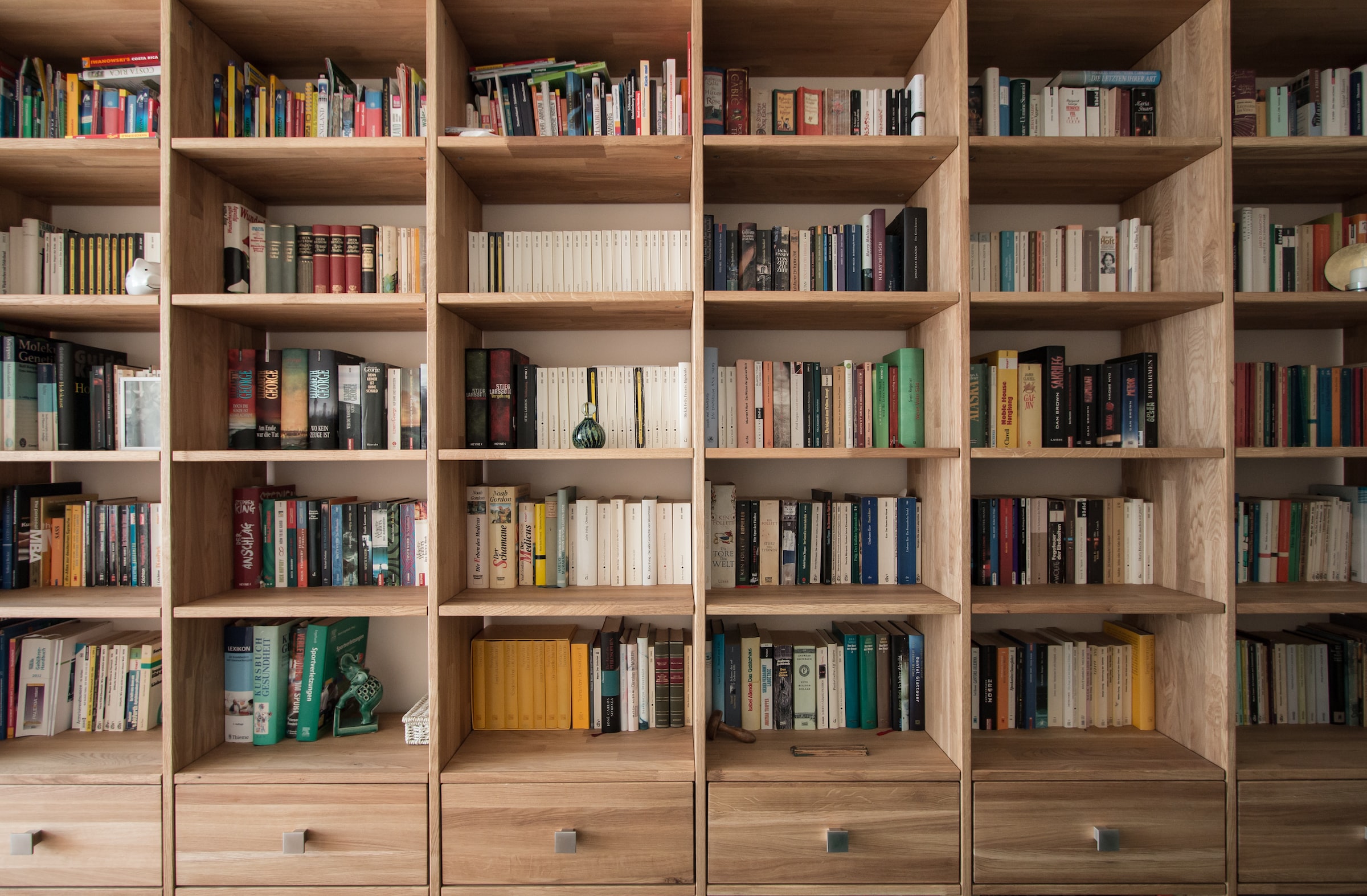
I’m not necessarily one of those elitist readers who only swear by beautiful editions. But I have to admit that beautiful books, books from beautiful collections, deserve a special setting. First of all, these books are often quite fragile, and as they are more valuable, you will want to keep them in good condition, which may require investing in a closed library to protect them from dust. Second, as a matter of size, it’s smarter to separate the larger sizes from the pocket sizes. You can more easily make piles with your pocket editions, allowing you to organize your library simply and efficiently without wasting too much time.
4. Think of the children!
If you have small children, don’t forget that they can’t access high shelves. So, if you don’t want to find your kids scaling a stack of chairs to grab their Where’s Charlie album, consider saving the bottom shelves for children’s books ahead of time. This way, you separate children’s books from adult ones while allowing young readers to reach for their books independently. This tip may not seem like much, but it can be very useful in everyday life!
5. Don’t clutter up unnecessarily
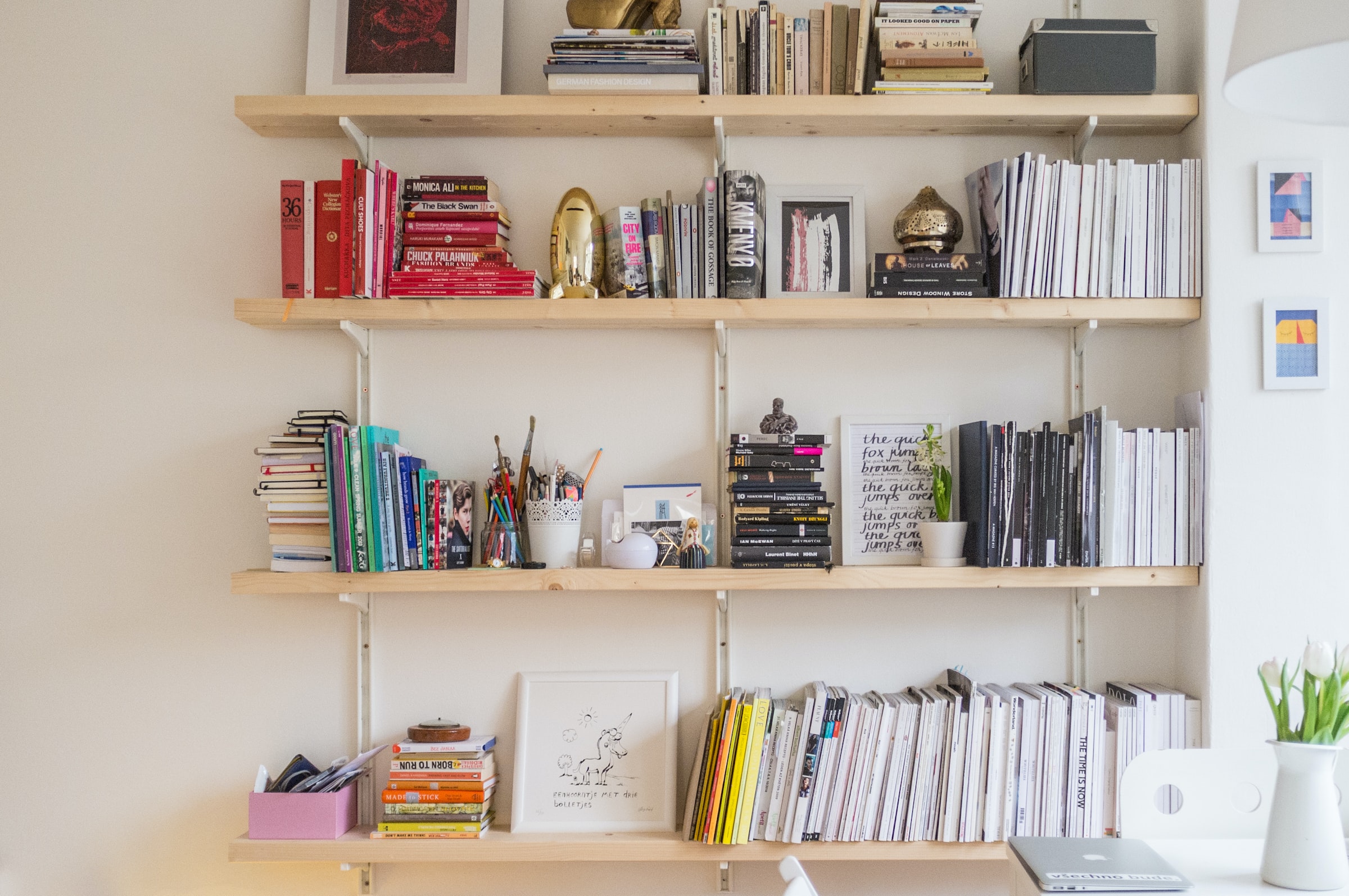
This advice may seem a bit paradoxical since I’m talking to readers who keep their books. However, if you are not the type of person who rereads books, or if you have books that you did not like, do not keep them. In life, you have to travel light! And as much as I’m the first to want to keep the books I like, I have no difficulty in parting with those that I didn’t like, or at least not enough to deserve to take up space in my library.
You have three options: give your books to your friends, resell them or (and this is my favorite solution) give them to a local library. Since library budgets are not expandable, they are often happy to receive books (as long as they are still in good condition). I hope these basic tips will be useful and give you some ideas on organizing your library efficiently. Also, please feel free to share your tips and ideas for optimizing library storage!
Sound off in the comments section below, and tell us what you want to read next and if you want to read more about storing books.
